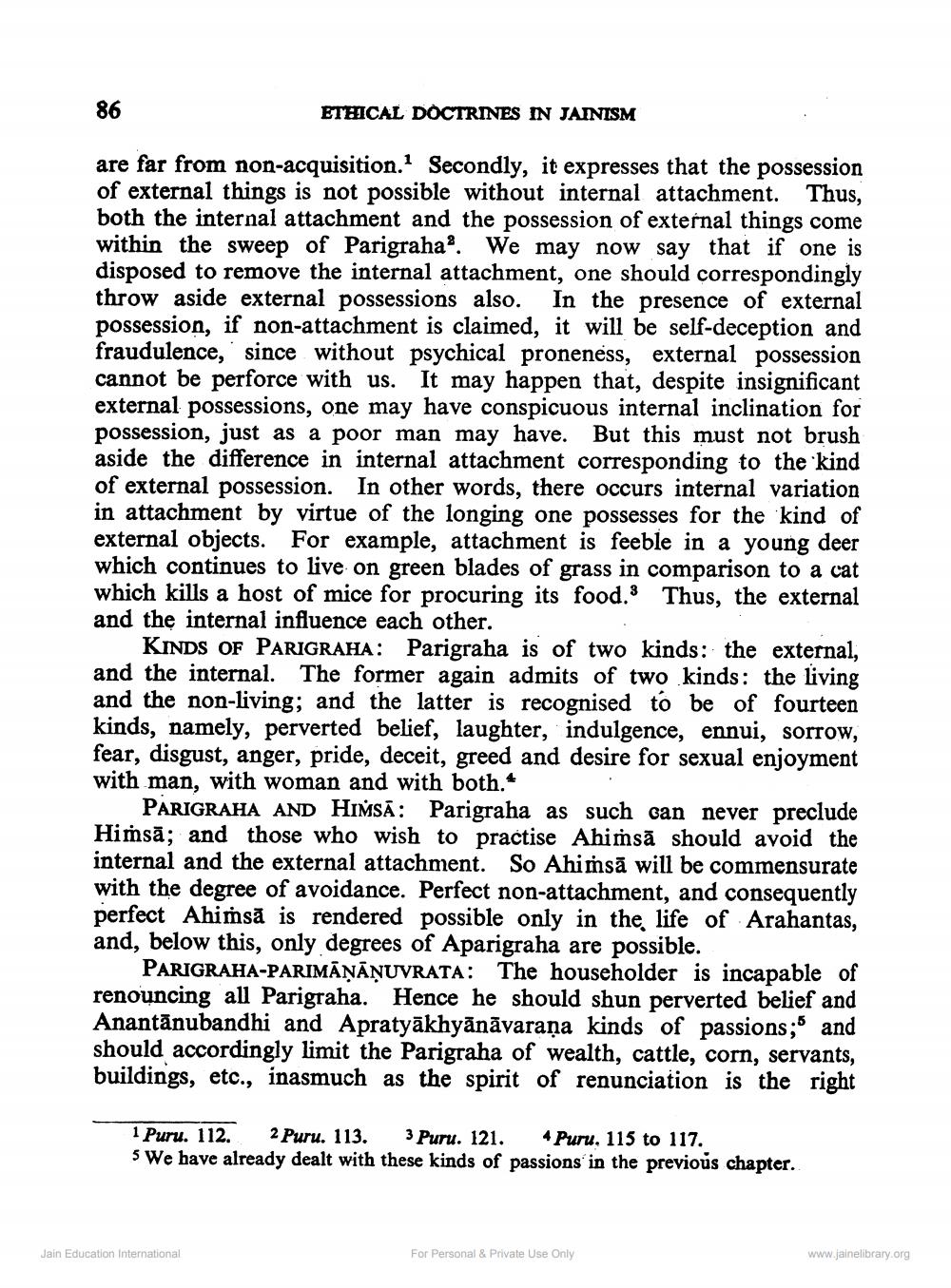________________
ETHICAL DOCTRINES IN JAINISM
are far from non-acquisition. Secondly, it expresses that the possession of external things is not possible without internal attachment. Thus, both the internal attachment and the possession of external things come within the sweep of Parigrahaa. We may now say that if one is disposed to remove the internal attachment, one should correspondingly throw aside external possessions also. In the presence of external possession, if non-attachment is claimed, it will be self-deception and fraudulence, since without psychical proneness, external possession cannot be perforce with us. It may happen that, despite insignificant external possessions, one may have conspicuous internal inclination for possession, just as a poor man may have. But this must not brush aside the difference in internal attachment corresponding to the kind of external possession. In other words, there occurs internal variation in attachment by virtue of the longing one possesses for the kind of external objects. For example, attachment is feeble in a young deer which continues to live on green blades of grass in comparison to a cat which kills a host of mice for procuring its food. Thus, the external and the internal influence each other.
KINDS OF PARIGRAHA: Parigraha is of two kinds: the external, and the internal. The former again admits of two kinds: the living and the non-living; and the latter is recognised to be of fourteen kinds, namely, perverted belief, laughter, indulgence, ennui, sorrow, fear, disgust, anger, pride, deceit, greed and desire for sexual enjoyment with man, with woman and with both.* .
PARIGRAHA AND HIŃSĀ: Parigraha as such can never preclude Hiṁsā; and those who wish to practise Ahimsā should avoid the internal and the external attachment. So Ahiṁsā will be commensurate with the degree of avoidance. Perfect non-attachment, and consequently perfect Ahimsă is rendered possible only in the life of Arahantas, and, below this, only degrees of Aparigraha are possible.
PARIGRAHA-PARIMĀŅĀŅUVRATA: The householder is incapable of renouncing all Parigraha. Hence he should shun perverted belief and Anantānubandhi and Apratyākhyānāvarana kinds of passions; and should accordingly limit the Parigraha of wealth, cattle, corn, servants, buildings, etc., inasmuch as the spirit of renunciation is the right
1 Puru. 112. 2 Puru. 113. 3 Puru. 121. Puru. 115 to 117. 5 We have already dealt with these kinds of passions in the previous chapter.
Jain Education International
For Personal & Private Use Only
www.jainelibrary.org




